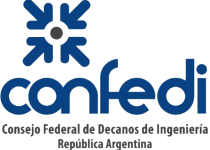A bi-objective metaheuristic for the problem of sequencing repetitive jobs in a flowshop heijunka production setting
Abstract
In this paper, a sequencing problem in a flowshop environment was studied, taking into account non-unitary demands for jobs, seeking to minimize the total completion time of all jobs ( ) while maintaining an adequate production mix throughout the sequence. A procedure to solve the problem was proposed: a bi-objective metaheuristic based on simulated annealing and tabu search. The proposed bi-objective algorithm generated a set of solutions that represents an approximation to the Pareto optimal frontier. An experimental work was developed to evaluate the performance of the technique used, resorting to the set of instances corresponding to a problem of industrial scale, obtaining a satisfactory preliminary performance both in terms of the quality of the sets of solutions obtained, as well as the computational effort required. Through the adopted solution approach, applied to the analyzed case of study, sequences that represent an adequate compromise between production lead times and the establishment of a uniform work flow in the facility can be selected.
Downloads
References
Bautista-Valhondo, J. (2021a). Exact and heuristic procedures for the Heijunka-flow shop scheduling problem with minimum makespan and job replicas. Progress in Artificial Intelligence, 10(4), 465-488. https://doi.org/10.1007/s13748-021-00249-z
Bautista-Valhondo, J. (2021b). Heijunka-inspired planning and sequencing methods in the apportionment problem in electoral systems [Métodos de planificación y secuenciación Heijunka inspirados en el problema del Reparto en Sistemas electorales]. Dirección y Organización, (73), 18-38. https://doi.org/10.37610/DYO.V0I73.590
Blazewicz, J., Ecker, K.H., Pesch, E., Schmidt, G. y Weglarz, J. (2007). Handbook on scheduling: from theory to applications. Editorial Springer. Berlin Heidelberg.
Du, K.-L. y Swamy, M.N.S. (2016). Search and optimization by metaheuristics: Techniques and algorithms inspired by nature. Editorial Springer International. Suiza. https://doi.org/10.1007/978-3-319-41192-7
Ehrgott, M. y Gandibleux, X. (2002). Multiple criteria optimization: state of the art annotated bibliographic surveys. Editorial Kluwer. Dordrecht, Países Bajos.
Engrand, P. y Mournay, X. (1998). Une méthode originale d’optimisation multiobjectif. Reporte Técnico HT-14/97/035/A, EDF-DER.
Framiñán, J.M., Leisten, R. y García, R.R. (2014). Manufacturing Scheduling systems. Editorial Springer. Londres.
Gmys, J., Mezmaz, M., Melab, N. y Tuyttens, D. (2020). A computationally efficient branch-and-bound algorithm for the permutation flow-shop scheduling problem. European Journal of Operational Research, 284(3), 814-833. https://doi.org/10.1016/j.ejor.2020.01.039
Knowles, J. y Corne, D. (2002). On metrics for comparing nondominated sets. Congress on Evolutionary Computation (CEC2002). Honolulu, Estados Unidos.
Korte, B. y Vygen, J. (2018). Combinatorial optimization: Theory and algorithms, Sexta Edición. Editorial Springer. Berlín, Alemania.
Landa, J. y Burke, E. (2002). A tutorial on multiobjective metaheuristics for scheduling and timetabling. Actas del 1st Workshop on Multiobjective Metaheuristics. París, Francia.
Marín, F. y Delgado, J. (2000). Las técnicas justo a tiempo y su repercusión en los sistemas de producción. Revista de Economía Industrial, 1(331), 35-41.
Monden, Y. (2011). Toyota production system: an integrated approach to just-in-time. Editorial Productivity Press. New York, EE. UU.
Pinedo, M.L. (2016). Scheduling: Theory, Algorithms, and Systems, Quinta Edición. Editorial Springer Cham. Heidelberg New York Dordrecht London. http://dx.doi.org/10.1007/978-3-319-26580-3
Rossit, D.A., Toncovich, A., Rossit, D.G. y Nesmachnow, S. (2021). Flow Shop Scheduling Problems in Industry 4.0 Production Environments: Missing Operation Case. Handbook of Smart Materials, Technologies, and Devices: Applications of Industry 4.0, 1-23. https://doi.org/10.1007/978-3-030-58675-1_71-1
Rossit, D.A., Toncovich, A., Rossit, D.G. y Nesmachnow, S. (2021). Solving a flow shop scheduling problem with missing operations in an Industry 4.0 production environment. Journal of Project Management, 6(1), 33-44. https://doi.org/10.5267/j.jpm.2020.10.001
Sumichrast, R. y Rusell, R. (1990). Evaluating mixed-model assembly line sequencing heuristics for JIT production systems. Journal of Operations Management, 9(3), 371-390. https://doi.org/10.1016/0272-6963(90)90161-6
Toncovich, A. (2019): Un problema de secuenciación en un entorno de producción just-in-time resuelto mediante un procedimiento metaheurístico. Actas del XII Congreso de Ingeniería Industrial (COINI 2019). Río Gallegos, Argentina.
Toncovich, A., Oliveros Colay, M.J. y Moreno-Jiménez, J.M. (2008). A mathematical programming model for a production scheduling problem in the furniture industry. Actas de la 18th International Conference on Flexible Automation and Intelligent Manufacturing (FAIM 2008). Skövde, Suecia.
Ulugu, E., Teghem, J., Fortemps, P. y Tuytttens, D. (1999). MOSA method: a tool for solving multiobjective combinatorial optimization problems. Journal of Multicriteria Decision Analysis, 8(4), 221-236. https://doi.org/10.1002/(SICI)1099-1360(199907)8:4<221::AID-MCDA247>3.0.CO;2-O
Zhou, B.-H. y Peng, T. (2017). Optimal schedule of just-in-time part distribution for mixed-model assembly lines. Jilin Daxue Xuebao (Gongxueban)/Journal of Jilin University (Engineering and Technology Edition), 47(4), 1253-1261. https://doi.org/10.13229/j.cnki.jdxbgxb201704034































































